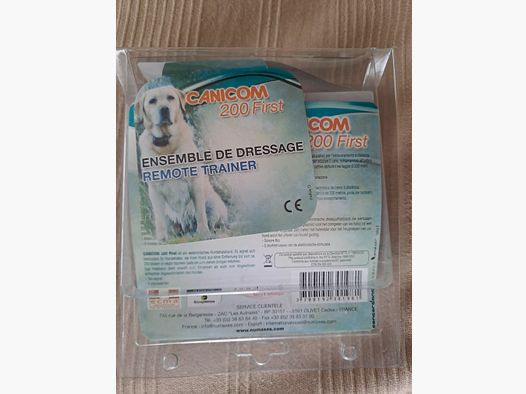If you own a pet, you surely know how important it is to take care of their health and safety. Especially dogs can suffer from various diseases or get injured in accidents, which can lead to high veterinary bills. This is where dog health insurance and dog surgery insurance come into play.
Dog Health Insurance or Dog Surgery Insurance?
A dog health insurance typically covers the costs of veterinary visits, diagnostics, medications, and treatments in case of illness or injury. Depending on the insurance, preventive examinations such as vaccinations or neutering may also be included. The advantage of such insurance is that in the event of an unexpected health problem with your dog, you do not have to bear the costs entirely.
In contrast, dog surgery insurance only covers the costs of surgical procedures. This means that for illnesses or injuries that do not require surgery, you have to bear the costs yourself. However, the costs for a surgery can be very high, especially if it is complex or requires a longer recovery time. Therefore, dog surgery insurance can help you reduce these costs and prepare for emergencies.
Both types of insurance have their pros and cons. If you are particularly concerned about your dog's health and want to be prepared for all possible scenarios, dog health insurance may be sensible. On the other hand, if you believe that surgery is the most likely scenario or already have issues that may require surgery, dog surgery insurance may be the better choice. In any case, you should carefully compare the terms and benefits of the insurances and consult an expert if in doubt to make the best decision for your dog.
A Current Topic
Our dogs are our best friends, and we want them to lead long, happy lives. But unfortunately, there are many dangers that threaten our dogs, and not all are due to diseases or accidents. In many cases, certain diseases are pre-programmed because we humans have chosen to alter certain breeds through overbreeding. We have shaped our dogs to look unnatural and thereby have a higher risk of health problems.
The malware is in the genes and has been written by us humans because we prefer certain traits in dogs that are often harmful to their health. We want dogs with short legs or an extremely shortened nose, which then suffer from shortness of breath and breathing problems. We want dogs that look like stretch limousines, risking back problems. These overbred dogs win coveted prizes at dog shows, but they have to suffer throughout their shortened lives.
A sad example is the pug, which often suffers from shortness of breath and agonizing breathing difficulties due to its shortened nose. In larger dog breeds, hip dysplasia (HD) is a common condition that leads to painful limitations in mobility. More and more dogs, not just German Shepherds, are affected. Without dog surgery insurance or dog health insurance, treatment can become very expensive, and sometimes a dog owner has no choice but to have their beloved pet euthanized.
If you choose an overbred dog breed, you must expect that your dog will need medical treatment sooner or later. It is important to take out dog insurance to have financial security and to provide your dog with the best possible care and treatment. Dog insurance can help reduce the costs of veterinary visits, medications, and surgeries, providing you and your dog with the necessary support in difficult times.
Overall, it is important to pay attention to a dog's health when choosing one and to be aware that certain breeds are more susceptible to certain diseases due to overbreeding. Dog health insurance can help reduce the costs of medical treatments and enable your dog to live a longer, healthier life.
Are There Waiting Periods with the Insurance?
In most cases, the actual coverage of a dog health insurance begins later than the insurance start date specified in the insurance certificate. The obligation to reimburse treatment costs and surgical procedures usually starts three months after the insurance begins, known as the waiting period. However, there are exceptions, such as preventive coverage or acute medical assistance in the event of an unexpected accident, where insurance companies provide full coverage from day one up to the agreed coverage amount.
The introduction of the waiting period serves not only as a nuisance to policyholders but also as a protection for them. Without a waiting period, any dog owner who finds themselves in a situation where their dog needs medical treatment would quickly take out dog health insurance. This would constantly put a heavy burden on the insured community, and as a result, premiums would become unaffordable. In the three months before the start of coverage, no one can know if their dog will become ill. For this reason, insurances are taken out for healthy dogs, which helps strengthen the insured community.
What Benefits Does the Insurance Offer?
Comparing dog health insurances is advisable, as the benefits can vary significantly between different providers. Differences can be seen, for example, in the reimbursement rates for veterinary fees and the maximum compensation limit per insurance year. A comprehensive dog health insurance usually offers extensive protection, where almost all veterinary measures are reimbursed up to the contractually agreed maximum limit. As in private health insurance, there are also maximum benefit limits per year in dog health insurances, and if these limits are exceeded, the dog owner must pay the remaining amount themselves.
Different veterinary services are valued differently, which is reflected in varying reimbursement rates. In general, bills for a variety of services can be successfully submitted, such as medications, surgical procedures, diagnostics, homeopathic treatments (depending on the tariff), follow-up care, physical therapies, veterinary fees, accommodation costs, and preventive care.
Most dog health insurances allow free choice of veterinarian, but it is beneficial for the animal if it already knows the vet and the practice. However, it may happen that the dog health insurance questions a diagnosis and commissions a veterinarian of their choice to conduct an examination if there are doubts about the medical necessity of the treatment. Whether the veterinary fee is covered up to three times the GOT rate depends on the chosen tariff. Some dog health insurances also offer worldwide coverage. In this case, the dog owner must initially pay the bills abroad themselves and can then submit them to the insurance after returning. It is possible to individually expand the dog health insurance with additional modules if needed. All these aspects can be considered in the context of a comparison of dog health insurances.
What is the Fee Schedule for Veterinarians?
Veterinarians, including veterinary clinics, must prepare their billing according to a fee schedule, similar to what is done with human doctors. This fee schedule is called the "Fee Schedule for Veterinarians" (GOT) and has been legally required since July 1999. The veterinarian must adhere to the billing rates for diagnostics, treatment, and surgery set out in the GOT. The GOT was last adjusted in July 2017, resulting in an average increase in fees of about twelve percent.
Such a fee schedule protects consumers from excessive claims and prevents aggressive price competition among veterinarians and veterinary clinics, as no one can make unrealistically low offers. However, there are areas where a GOT rate may be charged double or even triple under certain circumstances. It is now common to charge the double rate, while in emergencies and major surgeries, the triple rate is applied. The GOT is divided into basic services, special services, and organ systems, which is presumably due to the special structure of the fee schedule.
Do I Need Such Insurance Abroad?
For those who like to travel frequently with their dog, it is important that their pet insurance covers veterinary visits abroad. In fact, this is common practice with many providers. However, it is recommended to explicitly inquire with your dog's health insurance before starting your trip whether the destination country is actually covered. Additionally, the coverage period may be limited. If you plan to stay abroad for six or even twelve months, it is best to check with your dog's health insurance whether such long durations are accepted.
If you want to live permanently abroad with your dog, it is advisable to take a closer look at the "Agila OP Cost Protection Exclusive" tariff from Agila Dog Health Insurance. This tariff covers the costs of dog surgeries worldwide without limit, provided the insured has a German address and a German bank account.
If your dog needs medical treatment abroad, you must pay the bill in advance. This receipt is an important document that you can later submit to your dog's health insurance. It is best to include a brief explanation. Sometimes it is helpful to have the bill translated so that the dog's health insurance can better assess whether the claim is indeed justified in this case. Therefore, it is in your interest to ensure that the receipt is sufficiently detailed with the veterinarian's information. A small, illegible handwritten receipt may not be sufficient.
Dog Health Insurances Compared
In Germany, dog health insurance is still a relatively young insurance product, and accordingly, the number of providers is still limited. Nevertheless, there are significant differences in the design of the tariffs of individual companies. An important factor is the reimbursement rate according to the Fee Schedule for Veterinarians (GOT), which does not reach the triple rate with some tariffs. Additionally, some insurers require a veterinary examination of the dog before concluding the contract.
When conducting a comparison of dog health insurances, you should also pay attention to the following points:
The tariffs specify annual maximum benefits, which limit the reimbursement amount per year. This includes all services, including preventive examinations, outpatient and inpatient treatments, surgeries, as well as follow-up or rehabilitation measures. Many tariffs have deductibles, while some completely exclude deductibles.
Inpatient treatments and follow-up measures should be explicitly included in the dog health insurance. This may involve a longer stay in an expensive veterinary clinic. Many tariffs limit the financial support for inpatient accommodation to a maximum of 15 days. Unlimited inpatient treatment in the veterinary clinic can be specifically insured but also comes at a price.
Some insurers have issues with certain dog breeds. For example, fighting dogs may be associated with risk surcharges, if the company even insures such dogs at all. Other dog breeds are known for their susceptibility to certain diseases, which does not necessarily make insurance easier.
Where Can You Save?
An important term related to dog health insurances is "performance increase." This discount is granted if the insurance has not been claimed throughout the year. In this case, some providers increase their benefit limit for the following year based on the amount specified in the contract. This can lead to pet owners finally being able to have the surgery recommended by the veterinarian done without worrying about high co-payments. The system is similar to that of car liability insurance, where premiums increase or decrease depending on the use of the insurance.
If you pay the entire annual premium for the dog health insurance in advance, this means less administrative effort for the company, which usually reflects in a cheaper premium. The same applies to the contract duration: the longer the duration is set at the time of contract conclusion, the cheaper the annual premium usually is. Loyal customers are sometimes also granted special conditions. For a one-year dog health insurance, cancellation must be made in writing at least three months before the last insurance day. It is advisable to use a registered letter with return receipt to obtain confirmation.
A significant deductible can positively affect the premiums. For example, if you can cover veterinary costs up to an amount of 100 euros yourself, you should specify this as the deductible limit. The insurance will then only be liable when a bill exceeds the amount of 100 euros. The amount reimbursed will then be the bill amount minus the 100 euros deductible.
For guide, protection, and rescue dogs, most dog health insurances offer attractive discounts. If you register another dog with the same company in addition to such an animal, you can also expect a concession on the premium. Sometimes a second policy can even be waived if the existing dog health insurance is simply extended to include the new addition. The resulting reduced administrative effort is then also reflected in the premium. If a dog is given to another person or to a shelter, the contract can be terminated directly due to the loss of the "insured object." However, credible documents regarding the whereabouts of the animal must be provided, such as a letter from the veterinarian or a sales document. Any contributions paid in advance will then be refunded.





























